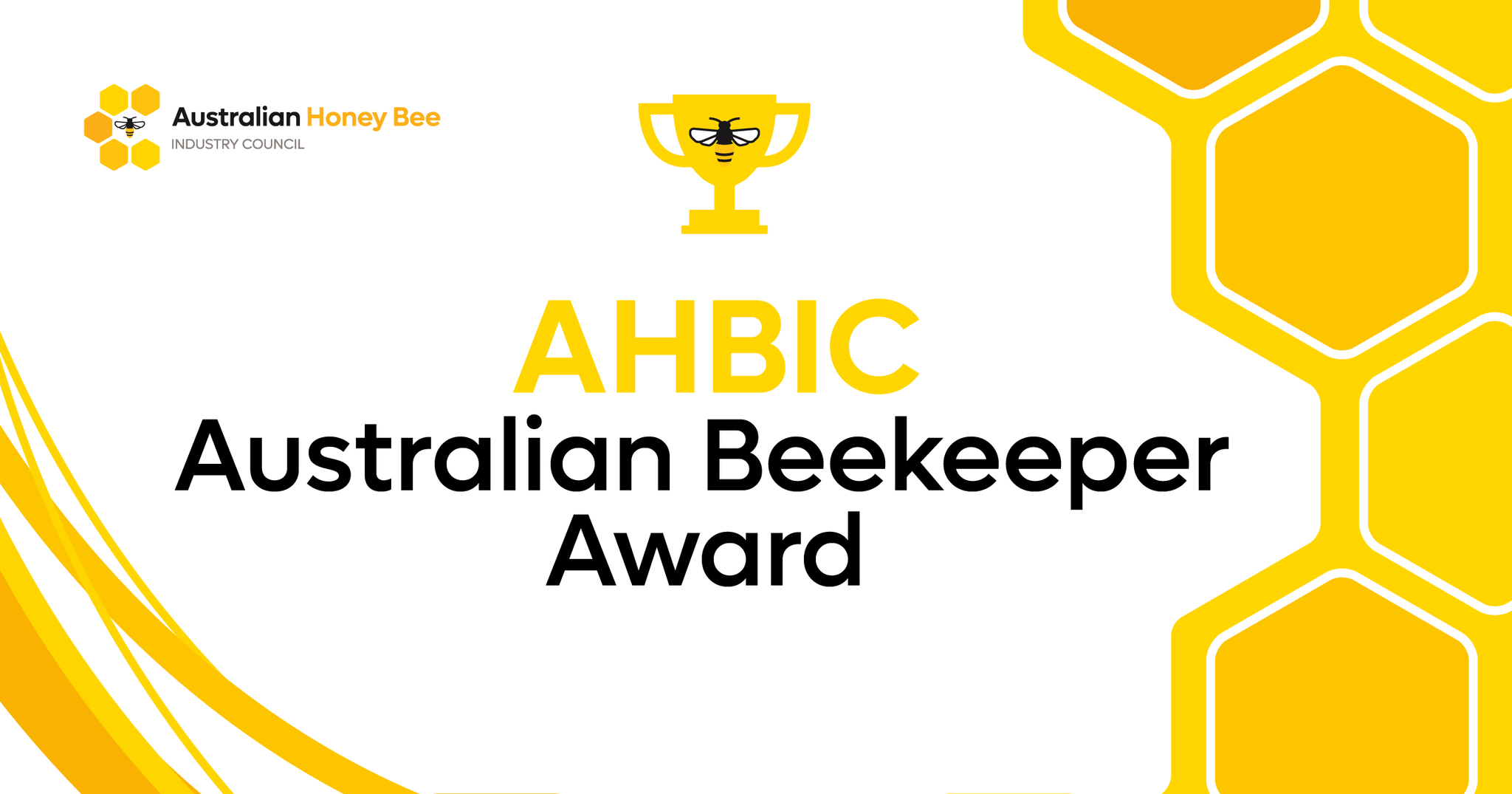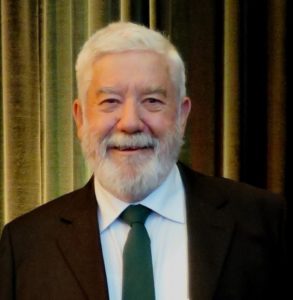Beekeeper Award state finalists have unique visions for Australia’s $14.2 billion honey bee industry
11 May 2022FIVE high-performing beekeepers having a positive impact on the nation’s honey bee industry have today been announced as state finalists in the inaugural Australian Honey Bee Industry Council (AHBIC) Australian Beekeeper Award.

The new awards program aims to celebrate emerging leaders within the vital beekeeping industry, which contributes $14.2 billion through pollination services to the national economy each year, as well as supporting rural and regional communities and helping to ensure food security throughout Australia and the world.
AHBIC Chair, Trevor Weatherhead, said the finalists came from a diversity of backgrounds – from multigenerational beekeepers to professional pollination service providers and recreationalists who have turned professional – and congratulated them for demonstrating their own unique and compelling vision for the industry.
“We are delighted by the calibre of entrants in the inaugural awards, and I congratulate the beekeepers who were judged finalists by their respective state beekeeping associations,” Mr Weatherhead said.

“Each of them has articulated their own distinct perspective and thoughts on the long-term sustainability of the industry, as well as innovative ideas for raising awareness of the importance of honey bees to Australians.
“In addition to producing the best honey in the world, our beekeepers underpin Australian agriculture by managing the honey bees that pollinate crops including almonds, apples, avocadoes, blueberries, cucumbers, pumpkins, and rockmelons.
“At a time when it is important to better connect with consumers and communicate this critical role honey bees play in feeding Australia and the world, it’s encouraging to see the enthusiastic group of finalists who are on course to be the leaders of the future.”
The state finalists will attend a two-day professional development workshop in Brisbane before the successful Australian Beekeeper Award winner is announced at the 4th Australian Bee Congress being held in Sydney from 8 – 11 June.
STATE FINALISTS
NEW SOUTH WALES
Zac Alcock, Central West Apiaries
Zac is a third-generation beekeeper and enthusiastic to continue his life-long education in honey bees to provide leadership that will support the industry’s growth. He has travelled abroad to learn about the pests and diseases that are biosecurity risks for Australia’s honey bee industry and to gain greater knowledge of various aspects of beekeeping, including alternative bee feeding techniques. Zac was able to share this knowledge with fellow beekeepers to support honey bee survival during the 2019-20 bushfire season.
QUEENSLAND
Jack Stone, Bee One Third
Jack has ten years’ experience as a beekeeper and a vision to see the honey bee industry at the forefront of Australia’s agricultural conversation. Currently, Jack delivers a unique service where businesses and community groups host a bee hive in their backyard, rooftop or community garden, which allows them to contribute back to their local ecosystem, while delivering a tangible return on investment in the form of honey. He sees opportunities to use effective communication to build relationships across the private and public sectors and help grow the honey bee industry.
SOUTH AUSTRALIA
Jake Leske, The Queens Cut
Jake is strong advocate of Australian honey and sees valuable opportunities to leverage existing relationships within the food industry to showcase the calibre and diverse range of flavours of honey available in Australia. He has a particular focus on native bush land revegetation and believes this is an avenue to continue building engagement with farmers to ensure access to bee pollination sites for years to come. Jake has interactive marketing ideas to help raise awareness of the importance of honey bees to global food security.
VICTORIA
Lindsay Callaway, Warral Maldon
Fifth-generation beekeeper, Lindsay Callaway, manages extensive contracts with some of Australia’s largest nut and seed growers, to pollinate 1,700 hectares of orchards and broadacre crops per year. Understanding the significance of pollination to many agricultural commodities, Lindsay has a strong vision for supporting the honey bee industry to build positive long-term partnerships with stakeholders to increase the professionalism and efficiency of the services. He is enthusiastic about growing a culture of innovation and entrepreneurship, especially in production and transportation, and helping consumers to understand more about the provenance of honey.
WESTERN AUSTRALIA
Julie Dinsdale, Honey in the Garden
Starting as a recreational beekeeper, Julie has established a family-owned commercial beekeeping business that produces and distributes honey. Her vision is to help educate people, particularly the younger generation, about the importance of honey bees and pollination services both at the local and global level. She believes education and awareness activities also have the potential to encourage young people to consider careers in the honey bee industry.
